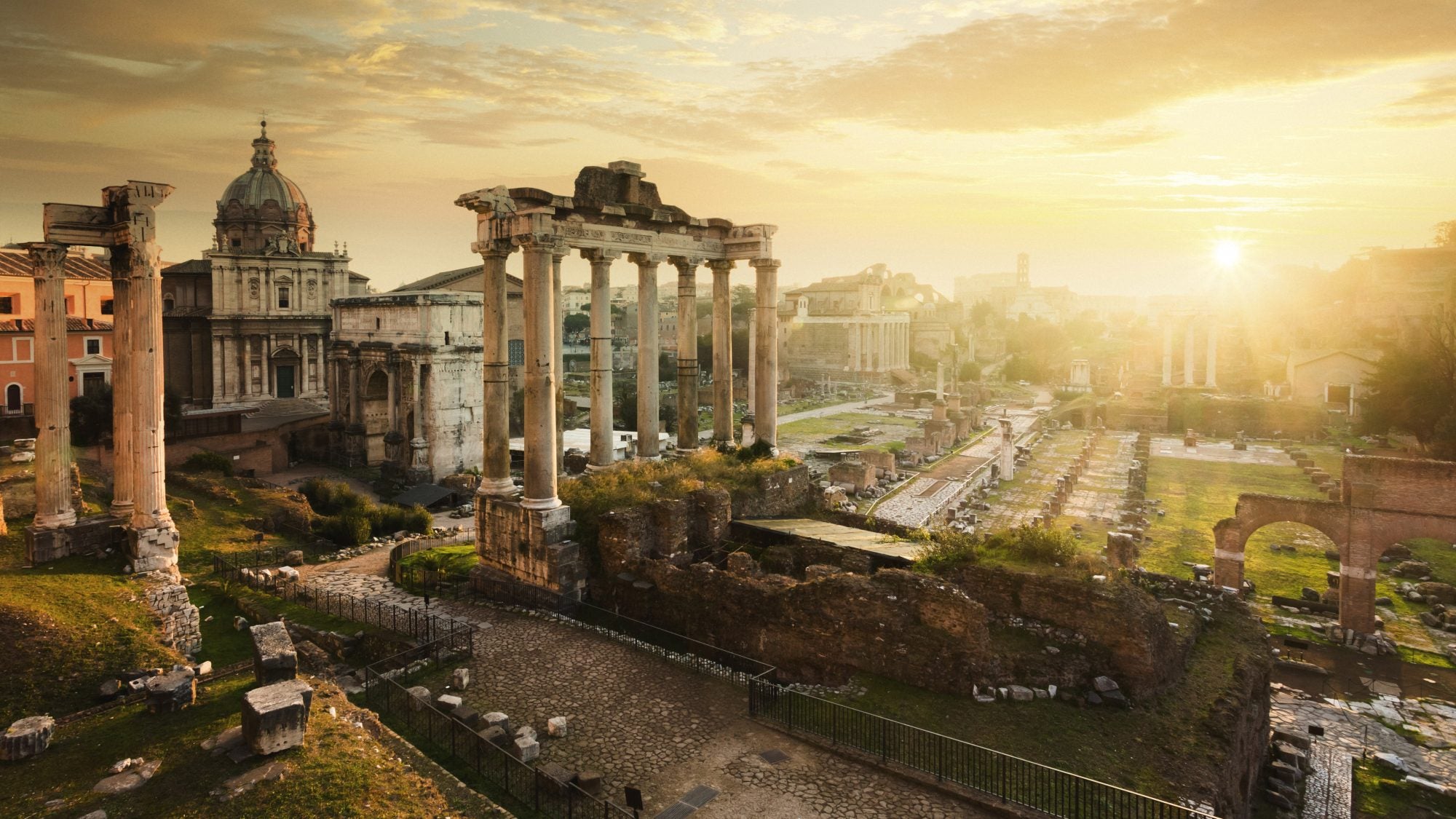It’s been over 2,000 years since Julius Caesar crossed the Rubicon and ushered in a civil war that would remake the Roman Republic and complete the transformation of the classical-era democracy into the Mediterranean-spanning Roman Empire.
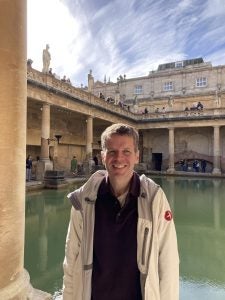
But a new viral trend on TikTok has people wondering if men want nothing more than to recast the die and go back in time to the age of the gladiator.
For Josiah Osgood, a professor in the College of Arts & Sciences and a historian of Rome, the viral trend just makes sense.
“Rome lives on in the modern imagination. People think of gladiators. They think of chariot racing. They think of power and empire. People in the media mention things like the death of the Republic and crossing the Rubicon,” said Osgood, who studies the fall of the Roman Republic and the Roman Empire. “And Rome is pervasive in pop culture. One of the oldest casinos in Las Vegas is Caesars Palace! It’s just all around us.”
Learn how Osgood found his calling in Roman history, what his favorite modern portrayal of the ancient empire is and, of course, how often he thinks about the Roman empire.
Why Josiah Osgood Thinks About the Roman Empire Every Day
One sign of problems to come: was I wanted to be great figures from history for Halloween as a child. One year I was Abraham Lincoln. I dressed up as how I imagined he would be as a boy, so I had a slate as if I was learning to read and write. Most kids have a poster of an NBA star, but I actually had a poster of Abraham Lincoln. I’ve always had a love of history. I just didn’t learn about the Romans until later on.
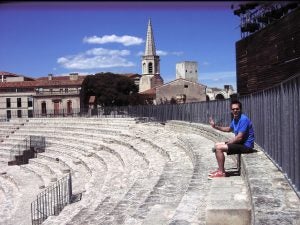
When I first fell in love with Roman history: I was in high school and given a chance to start studying Latin. There was a new teacher who had been brought out of retirement and was just a master. She taught me Latin, but she was so passionate about the subject that she made me fall in love with it.
The first time I was in Rome: was on a trip with my sister in college. It was in the winter but sunny with great light. I felt a sense of awe to see massive stone columns of temples reaching up to the heavens. I walked into the Senate House of Rome which still stands and felt amazement. At the heart of Rome in ancient times was a huge open square called the Forum. You can go to Rome today and stand there and feel as if you were there 2,000 years ago. And, of course, there’s this sense of wonder: What happened to this mighty civilization? Why did it prosper so long? And the question everyone wants to ask is, why did it fail?
I knew I wanted to pursue Roman history as a career: when I was in graduate school at Yale working toward a Ph.D., but I questioned whether I really wanted to do this for the rest of my life. But spending more time in Rome and Roman lands — a fringe benefit of being a Roman historian is getting to go to Italy, southern France, Sicily — helped too. It was a slow process, but I became pretty sure during my Ph.D. program.
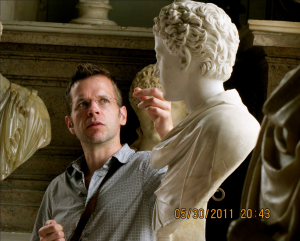
The reason I study Rome: is because the Roman Republic holds up a mirror in many ways to the United States. The writers of the U.S. Constitution were inspired by Rome. We have a Senate, a term that is borrowed from Rome. So much of our political system resonates with Rome. I also love the great writers of Rome. We have some of the most brilliant histories ever written by Tacitus about the politics of the Roman Empire. I always enjoy the timeless observations about power and what people with power do with it.
A significant professional setback I faced: was when I was an assistant professor sending out articles to journals for peer review. Several of my articles were rejected with negative reports, and they made me wonder if I had anything to say or was an imposter. So I learned to embrace criticism. I try to help students with that and give my feedback to them as constructively as possible but also make them aware that it’s a good opportunity to have your work evaluated, even if the immediate result can be frustrating.
My happiest moments in my career: are when I get emails from readers, especially fellow teachers or members of the public, who say they’ve enjoyed or learned something from what I’ve written.
I chose Georgetown because: there was a buzz around campus that I liked with engaged students in a lively place. I’ve enjoyed visiting the monuments and the museums and exploring the history of the region. And because of my research interest in civil wars, I’ve gone to many of the Civil War battlefields in the area. So our setting here in Washington is very inspiring.
If I could time travel to Rome: I would go back to the year 80 BC to the first criminal trial in which Cicero, Rome’s greatest lawyer, was speaking. This was the trial of Roscius, who was accused of killing his own father, and Cicero had to take the defense. Cicero was only 26 years old. He wasn’t from a famous family in Rome. This was his first big case, and he made a splash. I would love to have been there to hear him make the defense and get his client exonerated.
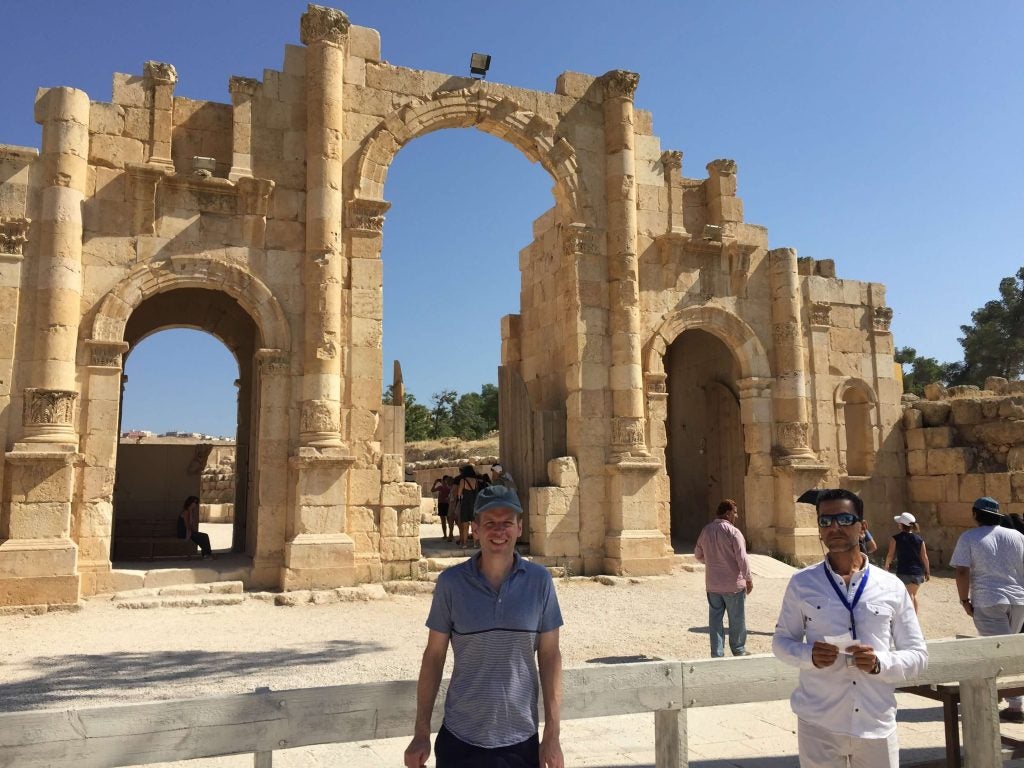
My pitch to study the Roman Empire: is that it’s the story of an amazing civilization that produced one of the longest-lasting democracies in human history and was also one of the longest-lasting and most extensive empires in world history. Finding out how the Romans achieved that, what problems they had and what the impact was on others and on us today is fascinating.
My all-time favorite portrayal of Rome: is the 1960 movie Spartacus with Kirk Douglas about the gladiator Spartacus and the war the enslaved peoples in Roman Italy fought against the Romans. I like the movie because it does a great job of helping the audience understand that gladiators weren’t just sports stars but generally enslaved people.
A pet peeve I have: is that the Roman Senate was not shaped in a semicircle, which is always the way it is shown in paintings and TV shows. The Roman Senate always met in the Senate House or temples that were rectangularly shaped. The benches where the senators sat would be put on either side of the room so it would look much more like the House of Commons in Britain. This was important because the senators would sit close together, and when they voted, they would move to one side of the room or the other. This created more of a confrontational atmosphere than one where we’re all sitting in a semicircle sort of pretending to get along.
How often I think about the Roman Empire: Daily. Hourly. A good research topic is one that you can never stop thinking about.
This conversation was edited for clarity.
